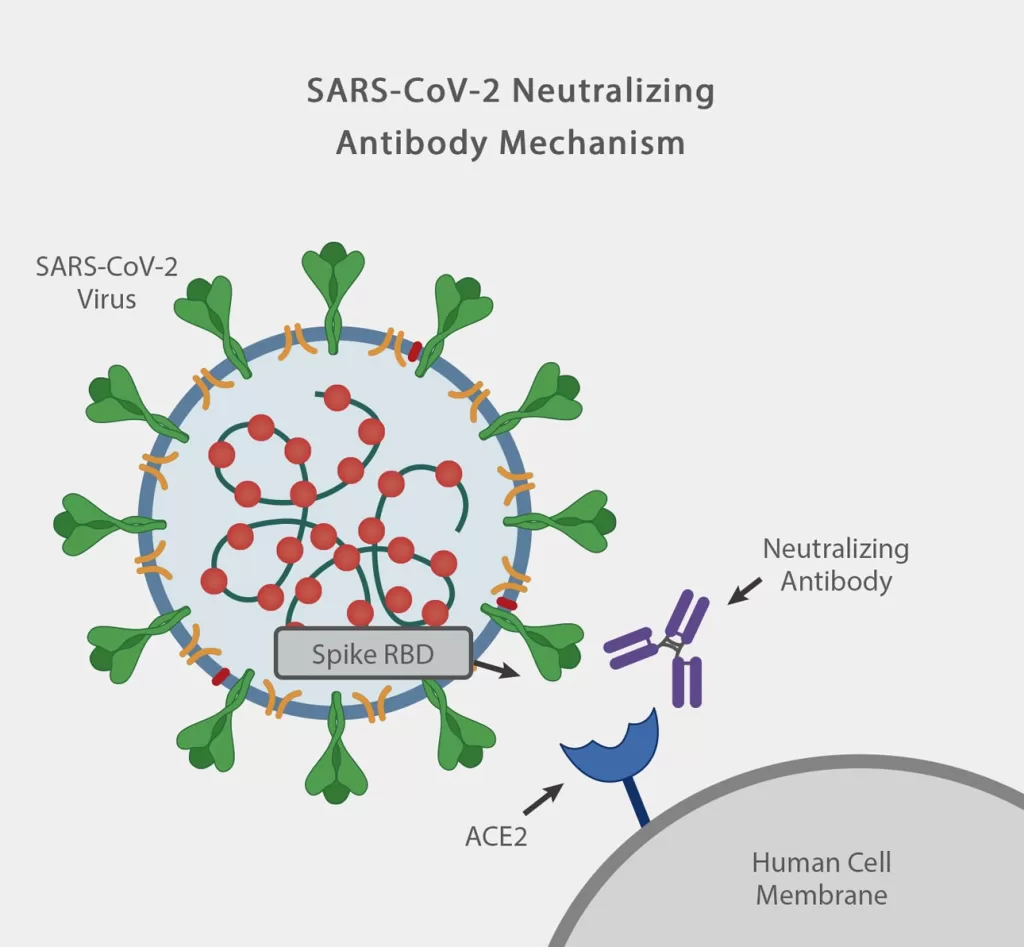SARS-CoV-2 Antibodies Correction highlights the importance of accurate scientific communication in public health research. Recent findings related to nucleocapsid antibodies and their association with SARS-CoV-2 infection have sparked considerable interest among researchers and public health officials. A correction notice issued by the CDC emphasizes crucial updates to an article published in the *EID journal*, ensuring the integrity of the research data. This correction serves as a reminder of the ongoing need for vigilance in understanding the immune response to COVID-19, particularly in unvaccinated and vaccinated populations. By addressing these errors, we can enhance our collective knowledge and response strategies during this pandemic.
The reevaluation of SARS-CoV-2 antibodies is vital for advancing our understanding of COVID-19 immunity. Recent developments in analyzing antibodies against the nucleocapsid protein have raised critical questions regarding their role in infection susceptibility among various demographics. The Centers for Disease Control and Prevention (CDC) has made necessary amendments to previous publications to ensure the reliability of findings as highlighted in their correction notice. Such updates are crucial for professionals engaged in the field of public health, allowing them to rely on accurate data in their ongoing research and response efforts. As we continue to navigate the complexities of the pandemic, the discourse on antibody detection remains a central theme in mitigating the impact of the virus.
Understanding the Significance of SARS-CoV-2 Antibodies Correction
The recent correction regarding the detection of nucleocapsid antibodies related to primary SARS-CoV-2 infection emphasizes the importance of accurate reporting in public health research. It highlights fundamental issues that can arise in scientific literature, which can potentially mislead practitioners and researchers alike. The corrected figures, now posted online, offer a clearer picture of how these antibodies behave in both unvaccinated and vaccinated blood donors, thereby refining our understanding of their implications in infection rates.
Moreover, the CDC correction notice serves as a crucial reminder for researchers to ensure the reliability of their data before publication. The errors found in Figure 3 not only affect the outcomes reported but also challenge the scientific community to uphold integrity and transparency. Inaccurate data can skew public health guidelines and impact clinical practices, underscoring the critical need for meticulous review processes in scholarly articles.
Frequently Asked Questions
What is the significance of the CDC correction notice regarding SARS-CoV-2 antibodies?
The CDC correction notice addresses errors in the article “Detection of Nucleocapsid Antibodies Associated with Primary SARS-CoV-2 Infection in Unvaccinated and Vaccinated Blood Donors.” This correction clarifies findings related to the detection of nucleocapsid antibodies and ensures that public health research is accurate and reliable.
How do nucleocapsid antibodies relate to SARS-CoV-2 infection?
Nucleocapsid antibodies are immune responses generated in reaction to the SARS-CoV-2 virus. Their presence can indicate a past infection with SARS-CoV-2, providing critical data for epidemiological studies and helping to assess immunity levels within populations, especially in unvaccinated individuals.
What corrections were made in the EID journal article about SARS-CoV-2 antibodies?
Corrections made in the EID journal article include specific adjustments to Figure 3, which contained multiple errors. These revisions are essential for accurately reflecting the relationship between nucleocapsid antibodies and SARS-CoV-2 infection status in different populations.
How does understanding SARS-CoV-2 antibodies support public health research?
Understanding SARS-CoV-2 antibodies, especially nucleocapsid antibodies, is crucial for public health research as it aids in tracking the spread of the virus, estimating immunity levels in populations, and informing vaccination strategies. The accuracy of such data is enhanced by ongoing corrections, such as those issued by the CDC.
Where can I find the corrected article on SARS-CoV-2 antibodies?
The corrected article titled “Detection of Nucleocapsid Antibodies Associated with Primary SARS-CoV-2 Infection in Unvaccinated and Vaccinated Blood Donors” can be found online on the CDC’s EID journal website at the following link: https://www.ncbi.nlm.nih.gov/pmc/articles/PMC8000000/.
What are the implications of the correction for future SARS-CoV-2 antibody research?
The implications of the correction for future SARS-CoV-2 antibody research include an increased focus on data accuracy, which is vital for interpreting antibody responses in public health. It highlights the importance of peer review and constant vigilance in scientific reporting, especially regarding immunity and infection data.
How should researchers address discrepancies in SARS-CoV-2 antibody studies?
Researchers should address discrepancies in SARS-CoV-2 antibody studies by conducting thorough reviews and corrections of published data. Collaboration with public health organizations, such as the CDC, and ensuring transparent communication about findings, are essential for maintaining scientific integrity and public trust.
| Item | Details |
|---|---|
| Correction Note | Figure 3 had multiple errors and has been corrected online. |
| Article Title | Detection of Nucleocapsid Antibodies Associated with Primary SARS-CoV-2 Infection in Unvaccinated and Vaccinated Blood Donors |
| Authors | E. Grebe et al. |
| Correction Published In | Emerging Infectious Diseases, Volume 31, Number 7, July 2025 |
| Citation | DOI: 10.3201/eid3107.C23107 |
| Article Metrics Note | The authors’ opinions do not necessarily reflect official positions of associated institutions. |
| Search Options | Advanced article search options are available by author, country, and article type. |
Summary
SARS-CoV-2 Antibodies Correction addresses significant errors identified in the original article discussing nucleocapsid antibodies in blood donors. These corrections are essential for accurate scientific discourse and public health understanding. The rectification helps ensure that findings related to SARS-CoV-2 antibody presence are correctly interpreted, contributing to ongoing research and public health policies.
The content provided on this blog (e.g., symptom descriptions, health tips, or general advice) is for informational purposes only and is not a substitute for professional medical advice, diagnosis, or treatment. Always seek the guidance of your physician or other qualified healthcare provider with any questions you may have regarding a medical condition. Never disregard professional medical advice or delay seeking it because of something you have read on this website. If you believe you may have a medical emergency, call your doctor or emergency services immediately. Reliance on any information provided by this blog is solely at your own risk.
